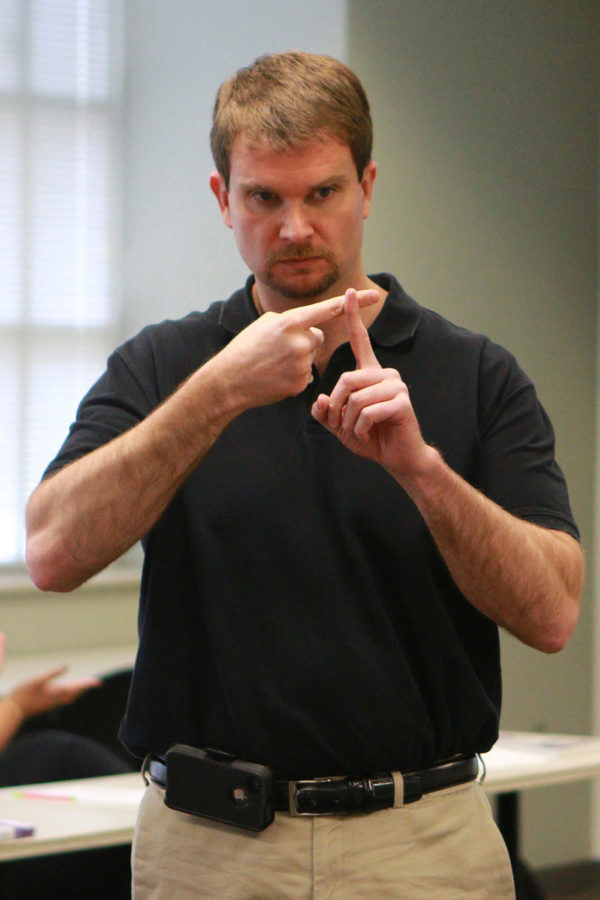UK diversity would lack without Sign Language
February 24, 2016
With more than 900 signatures in support of saving American Sign Language classes, it’s clear the UK and Lexington communities understand the importance of the university’s sign language classes.
UK’s four sign language classes within the College of Health Sciences will be phased out by the end of the fall 2017 semester.
The classes have almost 100 students and a growing waitlist, which adds up to a vast expansion from the 38 who started taking ASL classes in 2012.
“There are more students who want to take the classes than are able to take the classes,” ASL lecturer Anthony Isaacs said in an interview with the Kentucky Kernel. “I’m happy to know that students are motivated to learn this language.”
Language allows people to connect, to share a culture and to understand each other on more than just a superficial level. By providing ASL classes, the university is allowing students to understand and respect a disability.
Cutting ASL classes at UK will remove a vital educational offering and narrow our perspective.
Scott Lephart, dean of the College of Health Sciences, said in a statement that ASL’s phaseout was thoughtfully based on the college’s growth and strategic priorities.
Sarah Mac, secretary of the ASL club, said petitions are circulating to show support for ASL classes.
“I think they don’t know the importance of American Sign Language,” Mac said. “To them, it’s just a money thing.”
Educating students on what ASL is and its importance, especially in the Lexington community, will help more people become aware of the damage that cutting the classes will do.
Ableism, or the discrimination of people who are not able-bodied, is something that deaf people must constantly face. If a student has the power to make a connection, to build a friendship and to bring some “sound” to someone’s life, shouldn’t we support it?
Some students need ASL for their future careers. Some just want to communicate better with hearing-impaired family members.
Whatever the case, cutting ASL classes is a step in the wrong direction for our academic culture. It only hurts our community.
Fighting for ASL classes means fighting for a diverse and complex UK community. For our university to fight for justice and diversity, we cannot forget those who are quietly cut away.
































































































































































